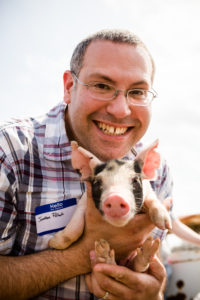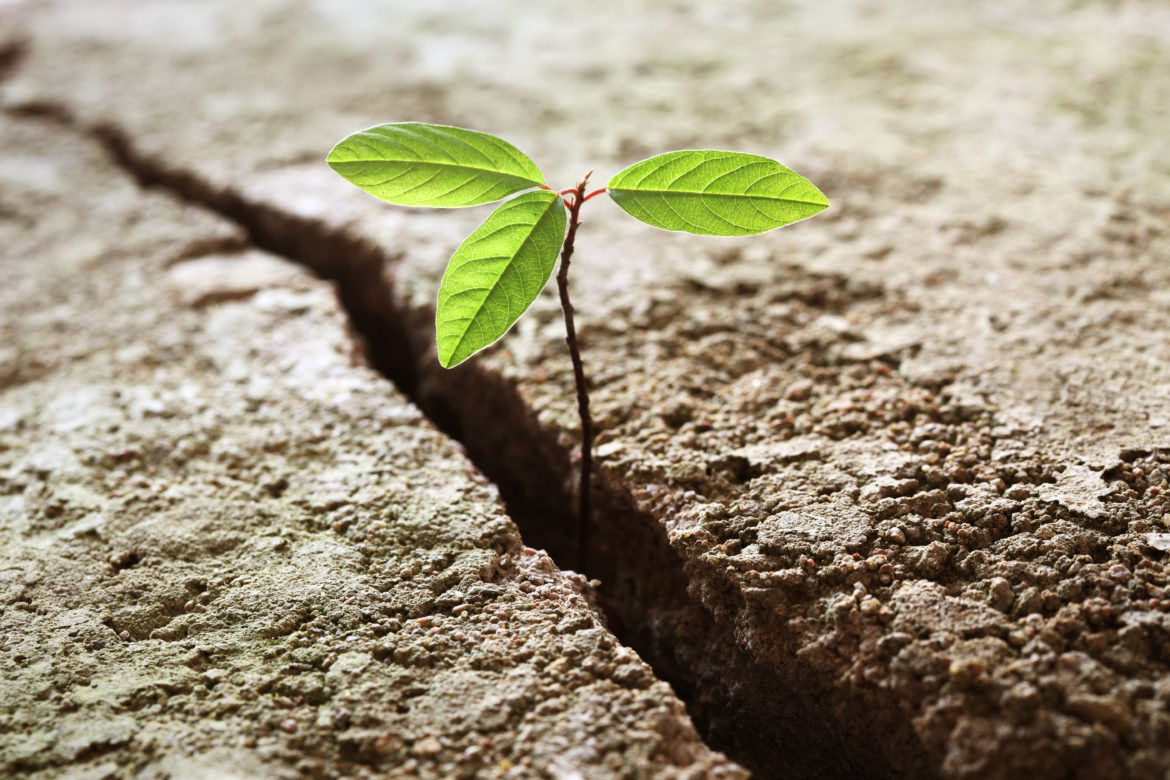Learning about my truth changed nothing and everything in an instant.
By Jonathan S. Pollack
I consider myself one of the fortunate ones.
I learned after taking a DNA test in January 2018 at age 41 that I was donor conceived. After corresponding with two half-siblings the day I received my test results and talking with my mother the next morning, it became painfully obvious my mother was a recipient of donor sperm and that my late father wasn’t the sperm donor. As part of the medical treatment for my parents’ infertility, my mother explained, doctors suggested mixing my father’s sperm with that of an anonymous donor—the only type available at the time of my conception. While these doctors didn’t advise my parents not to say anything about this to the child they would have, they didn’t encourage them to say anything either.
In an instant, I realized I wasn’t biologically related to my father or his entire side of the family I grew up with—grandparents, an aunt, and many cousins. To have this sudden realization in adulthood was traumatic. Learning about my truth changed nothing and everything in an instant. Learning I was donor-conceived had a sudden impact on my identity and will continue to affect me for the remainder of my life—in ways both good and bad.
I channeled my shock, grief, and anger into action. Within 24 hours of learning that my parents used an anonymous sperm donor to conceive, I used my DNA matches to identify my biological father. I shared that information with the half-siblings I’d been in contact with, and we all searched for photos online until we found the right picture, one of a present-day doctor who once was a medical student at a school affiliated with the hospital where we were conceived. I stared into the mirror, unsure of who was staring back at me as I searched the photo for physical similarities with this complete stranger who made up half of me. Within a week, I’d sent my biological father an email message to his workplace requesting contact about a personal matter. Impatiently, a few days later I sent another email to a different address I found, including details of what I’d learned and asking for confirmation that he had been an anonymous sperm donor.
While the months passed with no response, I discovered and connected with more half-siblings. (At this time, I’m one of eleven half-siblings.) I got involved in the online donor-conceived community by becoming a member, and eventually a co-administrator, of the Facebook group We Are Donor Conceived, and I reached out to distant family members for any information I could get about my immediate biological family. I believed my email messages hadn’t gotten through to my biological father or had been viewed as spam, so I sent a letter to his home address. While I waited to hear from him, I spent months building a family tree, researching his—my—family, learning what ailments family members died of and at what ages, gathering addresses and phone numbers, and trying to fit together these puzzle pieces to make sense of myself.
I didn’t choose to be a product of anonymous donor conception, and the choices made by others had a devastating effect on my sense of self as soon as I became aware of them. Family members suggested that my interest in my biological family and my perseverance in trying to learn about it had become unhealthy, but I did what I had to do to make sense of the situation I found myself in and to mend my newly fractured identity.
After three months of deliberation, my biological father still hadn’t responded. I contacted my half-brother Paul (not his real name)—the son my biological father and his wife raised. Well over the age of majority, he’d taken a DNA test before I had and was listed as a genetic match. When after several months Paul hadn’t responded, I reached out to his wife via Instagram, and she told him that I’d sent him a note. When Paul finally saw and returned my message, we set up a call and talked for hours. I told him what I knew, and he acknowledge that the shared DNA percentages demonstrated that we were half siblings and that his father was my parents’ anonymous sperm donor.
Within a week, Paul let me know that our father confirmed to him that he’d participated in the sperm donation program that led to my creation in the mid-1970s. Paul freely shared a family medical history and told me a bit about our father (or, as he likes to write, “my father/your father/our father”) and said he would ask him to contact me. Still, my letters to my biological father remained unanswered.
In March 2019, fourteen months after I first learned that I was donor conceived and about six months after talking with Paul, I drove eight hours to meet him and his wife. We ate and drank and talked for a solid twelve hours. Paul’s wife took the obligatory photo of me giving a noogie to my youngest half-brother. Late that night, Paul texted me to see if I would like our father and his wife to join us for brunch the next morning. I’m not privy to the conversations that took place behind the scenes, but I am grateful to everyone who helped my biological father overcome any hurdles he faced and be willing to meet.
I can’t adequately put into words the feeling of seeing, for the first time, someone who is half of me. I stared at my biological father and he stared back at me. My nerves—and, I imagine, his—were on edge. I look like him. His mannerisms are familiar. His dry sense of humor is mine. Our hands are the same size. We both have great memories. Our meeting was uncomfortable and amazing and surreal and revelatory all at the same time. We’ve since met once more, along with a few of my half-siblings who were also donor-conceived—his biological children. None of us expects or wants a parent-child relationship with our biological father. For me, that relationship is reserved for the father who raised me. For my biological father, that type of relationship is reserved for Paul, the son he raised. But I now have access to the person who gave me half of my DNA, which is what I sought; I can’t overstate how important that is to me.
Of all possible outcomes, mine is generally considered favorable by donor conceived people.
I’m fortunate that my relationship with my mother, strained for more than a year, is mended. I’ve come to understand her motivations and actions, and she understands mine.
I’m fortunate that my biological father’s wife and Paul were forces working to help him through this tricky business of unmasking anonymity. So many donor-conceived people are refused contact or cut off after initial contact by those close to their biological parents who fear contact will threaten their relationships. I will be forever grateful that my biological and extended family has been, and continues to be, so open to the possibilities.
I’m fortunate that I have half-siblings who are open to contact and to meeting, including Paul. We communicate regularly, and it’s strangely familiar and unforced. Our interests and personalities overlap in fascinating ways.
I’m fortunate that, despite anonymity intentionally separating me from my family and keeping me for so long unaware of my biological roots—and despite the difficult social situations that result from donor conception and the secrecy that can surround it—I’ve been able to meet and forge some kind of a curious relationship with my biological father. I look forward to seeing where it leads.
Jonathan Pollack is a freelance photographer who specializes in food and restaurant photography as well as large life events. He uses his photography skills and computer science background to help his wife Stefani run Cupcake Project, her baking blog and social media destination. He and Stefani live in St. Louis, Missouri, with their wonderful son and egg-providing pet chickens. Pollack enjoys spending time with farm animals on photoshoots.


